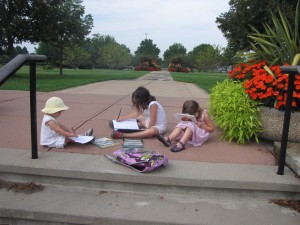Why do we eat one another alive?
It happens all the time. Just look at what happens any time a Christian leader is found out or, worse, confesses. Just look at what happens whenever a Christian public figure says something that is outside of our comfort zone. Just look at what happens so many times when someone in our own churches does or says something we don’t agree with.
We talk, we rant, we fill up the air with our words. And our words are not of grace.
It is too easy to speak harshly within the anonymous confines of the internet. We forget at times that those on the receiving end of our arrows are as beloved as we are.
Why do we do it?
Fear, perhaps.
We fear that others will think poorly of us or of our faith if we do not speak out quickly and harshly against whatever was wrong. We fear that we will be viewed as the same if we speak words of love instead of words of condemnation.
We fear, perhaps, that we are the same deep down inside, and we do not want anyone to know the truth.
Yet the irony of it all is that the very One we are trying to defend is the same One who shared meals, shared life with those who made the most public of mistakes.
The irony is that the Bible is crammed full of one another verses…and not one of them mentions devouring one another.
Show kindness and mercy to one another.
Love one another.
Outdo one another in showing honor.
Welcome one another.
Bear with one another.
Be kind to one another.
Forgive one another.
These are just the beginning.
Jesus said that people would know that we follow Him by our love. Too often love is not what we show to the world. I confess that perhaps I would not think very highly of Jesus if all that I knew of Him was what I read on the blogs and Facebook pages of His followers.
May God help us.
May the God of love and grace teach us how to get rid of our motto of We eat one another alive.
May He instead change our hearts to adopt the motto of We never leave a fallen comrade behind.
Art Credits: Lion photo by Juliane Riedl; Christ and Samaritan Woman painting by Henryk Siemiradzki






















